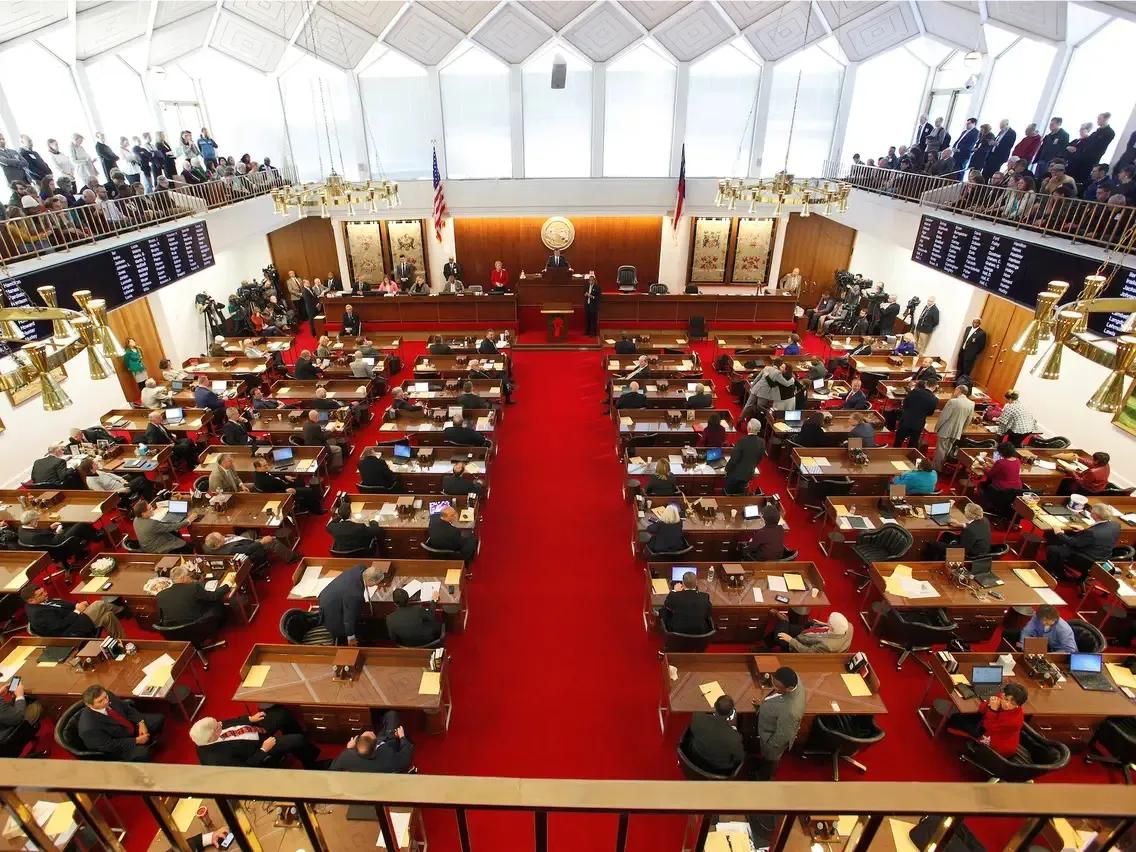Editorial: Legislators - Take care of business and pass Gov. Cooper's budget

CBC Editorial: Monday, April 29, 2024; #8926
The following is the opinion of Capitol Broadcasting Company
It is an election year and Democratic Gov. Roy Cooper has done legislative candidates, regardless of their partisan affiliation, a favor with the budget adjustments he’s proposed.
Much apropos to Cooper’s moderate ideological temperament, it is essentially consensus recommendations that Republican and Democratic legislators can embrace, accomplishing key needs a broad majority of North Carolina voters embrace while avoiding campaign trail “gotchas” and votes that would be fodder for negative attacks.
It is balanced, cuts some business taxes and provides attention to critical areas of need including education, public safety, infrastructure, the environment and economic development. Perfect? Of course not. But for those who can liberate themselves from reflexive partisanship and ideological tricks and twists – not very much of an effort – it is a budget that does what it should to meet the needs of the state.
Is there anything about the status of private school vouchers – a highly controversial issue – that requires immediate action? While there certainly are a variety of concerns to be addressed – regardless of what the position is on this issue – waiting until after the election won’t cause any undue hardships.
Legislative leaders could also forego the agonizing and irritating horse-trading and pork barrel payoffs to win support of reluctant legislators. They could quickly get the budget taken care of, deal with any other local issues that must be addressed and leave to the campaign trail the contentious arguments over: restrictions on voting, gambling/casino expansion, women’s health issues, gerrymandering, marijuana, “DEI (diversity, equity inclusion)” in schools and public universities and the like.
Cooper’s budget embraces consensus needs.
For education, key recommendations in his budget include:
- Much-needed increases in teachers and other public school workers’ pay – an average of 8.5% teacher pay raises while lifting starting teacher salaries and a $1,500 retention bonus for most teachers.
- Providing 700 elementary school teaching assistants in grades K-3.
- Allowing $2.5 billion in school construction bonds – that would only be imposed after local referendums. Our state’s schools have a $13 billion backlog in needs for new and renovated schools,
- Investing $34.7 million to expand “Read to Achieve” to middle school students.
- Expanding the pipeline for new teachers with $11 million to strengthen opportunities for more people to pursue careers in teaching including expanding the Teaching Fellows program
North Carolina faces a crisis in childcare that both threatens providers, parents in need of services as well as employers who face workforce challenges in finding workers. Cooper’s budget provides:
- $745 million to strengthen childcare and early education for working families – including $200 million for Childcare Stabilization Grants and $128.5 million for subsidies to increase reimbursement rates in rural and low-wealth communities.
State government is facing severe challenges in keeping and attracting workers to provide citizens with the services they expect. Across state government there’s a 23% vacancy rate. It was 13% before the COVID pandemic. Turnover rate among first-year state workers is even more severe – 33% compared with 14% before the pandemic. Cooper seeks to address this with:
- 5% raises for all state workers – in addition to the 3% already in the budget passed last year.
- Modestly increase annual leave for state workers earlier in their career – for example from 14 days to 17 for workers with 1 to 5 years service.
- $195.8 million to help state agencies, universities, and community colleges with flexibility to address hard-to-retain positions.
In addition to addressing the childcare crisis that would help employers, Cooper’s budget helps grow the state’s economy by:
- Cutting $49 million from unemployment insurance taxes employers with 500 or fewer workers must pay.
- Providing $9 million to help small businesses acquire federal funds through One NC.
To deal with key needs of the state’s communities along with their health and environment Cooper’s budget proposes:
- Establishing a $100 million fund for local communities to clean their water of pollutants such as Per- and Polyfluoroalkyl Substances (PFAS).
- Reissuing the state’s conservation tax credit encourages preservation of critical habitats.
- $20 million to reduce flooding with waterway and drainage upgrades.
- $5 million for new equipment to help the state’s Forest Service better deal with wildfires.
Cooper’s budget is basic and to the point. There are no dramatic initiatives, no hot-button or controversial schemes.
It is an approach well worth emulating. Pass Cooper’s no-frills budget, focus on taking care of business and keep the “short” session short.
The sooner they do that, the quicker legislators can get on the campaign trail, inflate their rhetoric and ignite all the controversies they choose.
Capitol Broadcasting Company's Opinion Section seeks a broad range of comments and letters to the editor. Our Comments beside each opinion column offer the opportunity to engage in a dialogue about this article. In addition, we invite you to write a letter to the editor about this or any other opinion articles. Here are some tips on submissions >> SUBMIT A LETTER TO THE EDITOR









